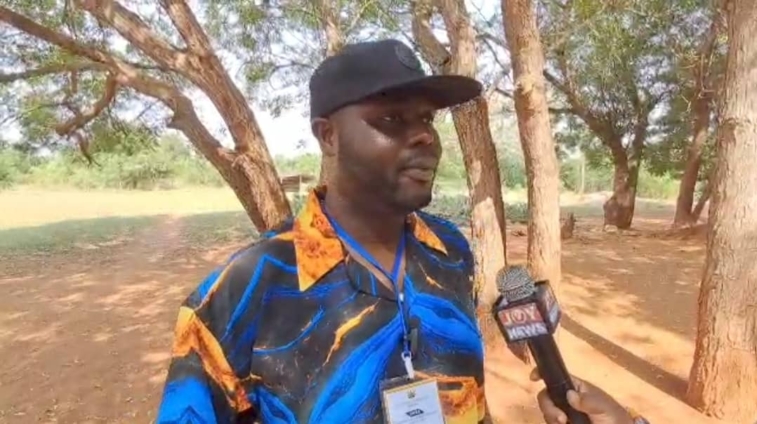A philanthropist and former aspirant in the Ketu North parliamentary primary of the National Democratic Congress (NDC) in the Volta Region, Gabriel Kwamigah Atokple Tanko, has weighed in on concerns about low voter turnout in the Ketu North and Ketu South constituencies.
According to him, the low turnout witnessed at several polling stations could be linked to the daily economic activities of residents.
Speaking during a visit to polling centres in Ketu North, Mr Tanko observed that many eligible voters were likely occupied with farming and trading activities during the early hours of the day, delaying their arrival at polling stations.
"In communities like ours, people often prioritize their livelihoods before heading to the polls. It is common for voters to return from their farms and markets before making time to cast their votes," he stated.
Mr Tanko, who lost the NDC Ketu North primary, expressed confidence that despite the initial low turnout, people would eventually come out in significant numbers before polls close.
"Our people understand the importance of their votes. They will show up and exercise their civic duty before the day ends," he assured.
During his visit, Tanko engaged with electoral officers, party agents, and community members, encouraging them to remain steadfast and committed to ensuring a peaceful and credible election process.
Observations from Polling Centers
Reports from polling centres in Ketu North highlighted a relatively slow start, with fewer voters compared to previous elections. Electoral officers noted that the situation was not unusual, citing similar patterns in past elections.
A presiding officer at one polling centre remarked, "The numbers tend to pick up later in the day, especially in farming communities."
Broader Implications
Tanko's remarks shed light on a broader challenge in rural areas where economic activities often compete with political participation. His observations underscore the need for electoral stakeholders to consider these dynamics in future election planning.
Latest Stories
-
Fameye paid me GH¢5,000 to twerk to his song – Akuapem Poloo
23 seconds -
Oppong Nkrumah demands budget clarity on flagship programmes
8 minutes -
Camidoh explains why he ditched rapping to focus on singing
15 minutes -
Father killed, son injured in armed robbery attack on Bole-Bamboi highway
19 minutes -
Ghana Shippers Authority and Prof Ransford Edward Van Gyampo in focus
27 minutes -
GH₵13bn for Big Push insufficient – Egyapa Mercer
32 minutes -
I paid people to insult me so I would be popular – Akuapem Poloo
48 minutes -
WAFCON 2024: Black Queens are a ‘better team’ now – Björkegren
56 minutes -
Council of State member escapes highway robbery as gunmen steal cash and rifle
1 hour -
BBC and news agencies warn journalists in Gaza at risk of starvation
1 hour -
12 killed in Thailand-Cambodia military clashes on disputed border
1 hour -
WAFCON 2024: South Africa want to ‘end on a high note’ against Ghana
1 hour -
Coca-Cola to launch Cane Sugar Coke in the US, potentially boosting Ghana’s sugar economy
1 hour -
Minority threatens to boycott Mid-Year Budget presentation
1 hour -
Isak not in Newcastle’s pre-season Asia tour squad
2 hours

